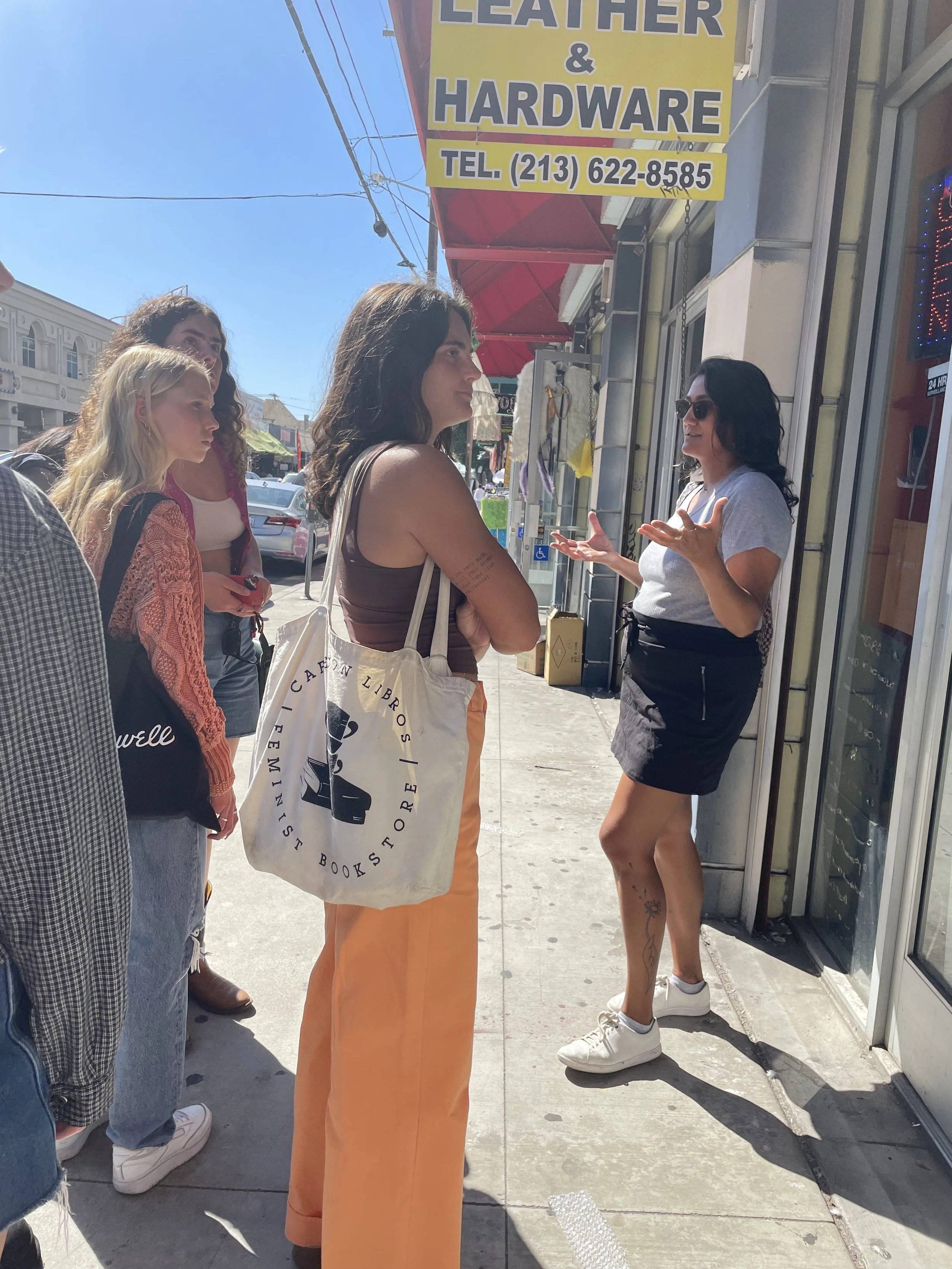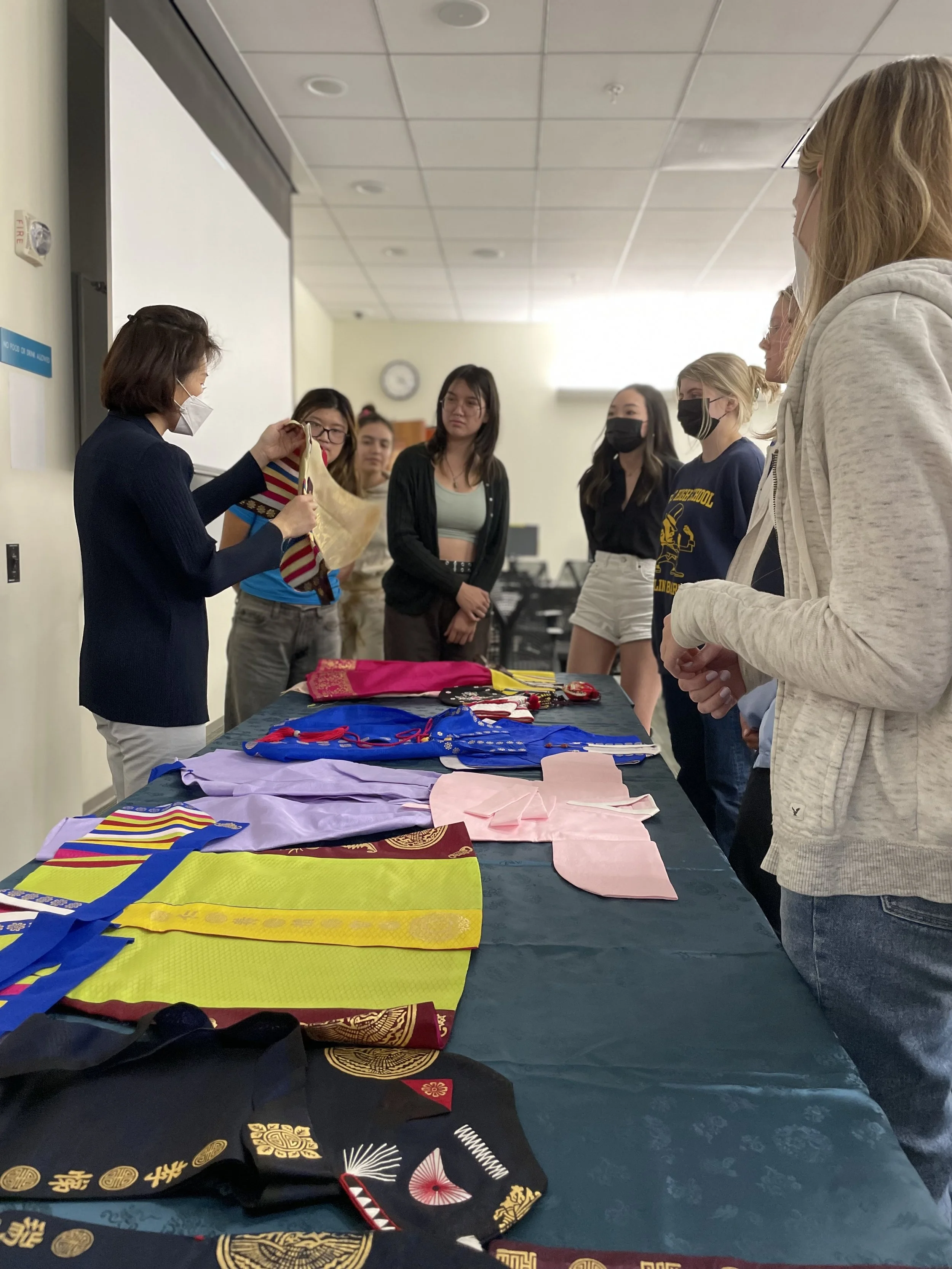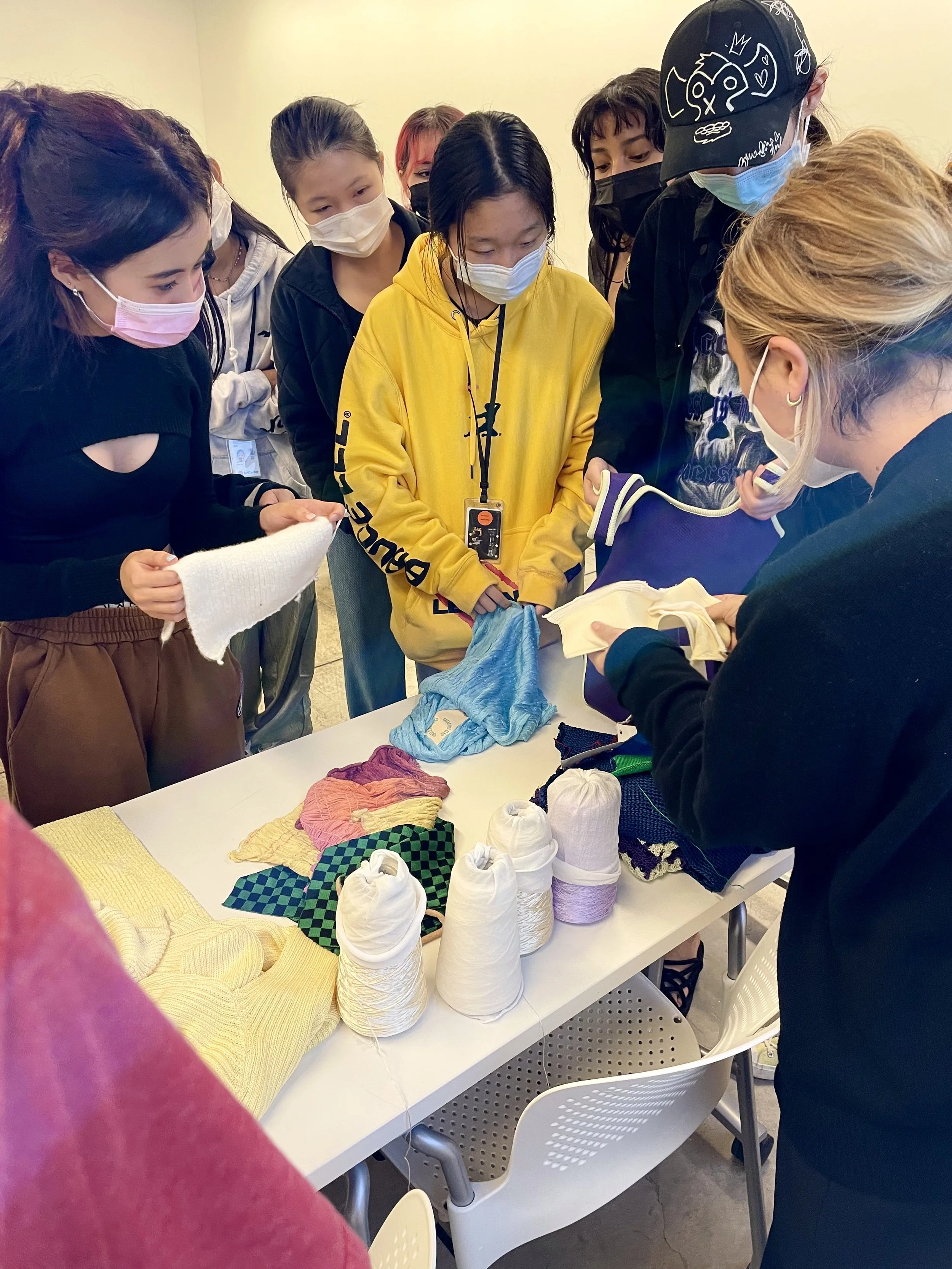Pedagogy
Since 2019, Rachel has been teaching undergraduate courses about fashion.
The majority of the students she has taught are not “fashion students.”
Rachel’s courses dismantle Eurocentric views of fashion. Her approach understands that contemporary clothing production and consumption has been shaped by patterns of colonialism.
student appreciation
-
Emily P.
Thank you so much for a fantastic semester of Sustainable Fashion! I was so excited to take this class at the start of the semester and I am thoroughly satisfied with what I had learned and have gotten from this course with you. Thank you for all your kindness, guidance, and fun-spirit!
-
Caroline K.
I enjoyed learning in your class, and I admire your teaching style. As a student, I really appreciated your willingness to be flexible and work with my learning style. You made me enjoy learning and helped me grow as a student.
-
Cate S.
I feel so grateful that I got to be in two of your courses this semester and feel I gained a lot from them both. Thank you for making these classes so engaging and for being such an easy person to talk to. You created such a fun and comfortable environment in your class, and I know we all greatly appreciated it.
-
Tayla G.
Not only did I learn a lot, but I really enjoyed both classes I took with you. I especially appreciated the optional materials you provided in the fashion class. I listened to the BOF podcast you sent out last week, and it was really encouraging to hear about another art history major's success in the fashion industry.
-
Hanna B.
I’m grateful that I was able to take most of the classes you’ve taught here because I felt that I’ve learned so much about the fashion industry and just fashion as a whole. Your classes have made me hopeful about a career in fashion!
-
Emma L.
Thank you for all the comments you have left throughout the semester. They were very encouraging and helped me seek out different pieces for the object studies. Your comments also helped me in writing for another course I took this semester.
Selected courses
Fashion: Culture & Industry
Currently teaching at ArtCenter College of Design. Previously taught at Chapman University.
Course Description: This course provides a review of fashion as a cultural industry, examining the production systems and commercial institutions that comprise the contemporary global fashion industry. Students will learn about fashion through scholarly writing, magazine articles, podcasts and documentaries. This course aims to introduce students to different perspectives on fashion, from a wide scope of media sources. Students will work on a research project analyzing a particular aspect of fashion, synthesizing primary sources and scholarly perspectives. The topic of the research project should be the choice of the student and should focus on examining an existing component of the fashion system - a person, form of fashion media, institution, company, or practice.
Sustainable Fashion
Currently teaching at ArtCenter College of Design. Previously developed and taught at Chapman University.
Course Description: This course will study sustainable fashion through a holistic approach that considers the past, present, and future of clothing consumption. The fashion industry is responsible for 10% of humanity’s carbon emissions and 20% of global wastewater. We will explore how designers, organizations, and movements are responding to issues of worker exploitation and environmental pollution. We will examine methods of sustainable production, the role of policy in the fight for change, and the discourse surrounding “sustainability” in the fashion industry. We will explore how the current fashion system was shaped by the radical transformation of clothing consumption in the twentieth century and how innovations in the twenty-first century are leading towards a sustainable future.
Introduction to Creative and Cultural Industries
Taught at Chapman University
Course Description: This introductory course outlines the core debates in 21st century related to culture, media and creative industries as they inform our ideas and relationships regarding identity and technology. Students are introduced to the foundational methods of media and cultural analysis and critical inquiry.
Performing Style and Identity
Developed and taught at Chapman University.
Course Description: This course explores the performance of identity through dress within a contemporary global context and in relation to gender, race, and class. How can practices of dress embody critical thought and ideas? The class examines the relationship of style and identity through the following units: Contextualizing Dress as Embodied Practice, Fashioning Identity, Style as Resistance, and Performing Style and Identity in Critical Practice. Students will examine their own personal dress narratives and will analyze the work of a contemporary artist who incorporates identity as a key part of their work.
classroom activities



